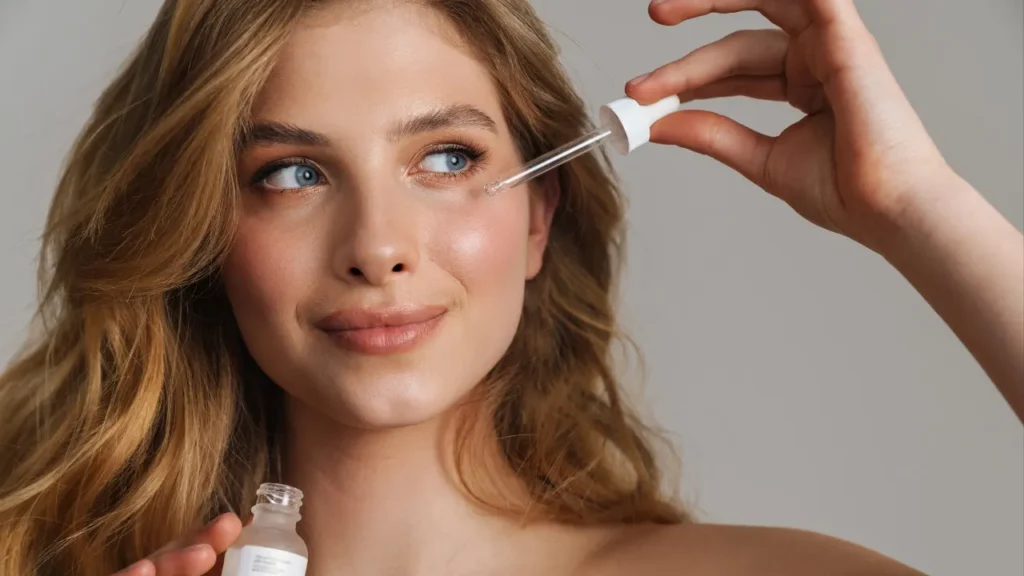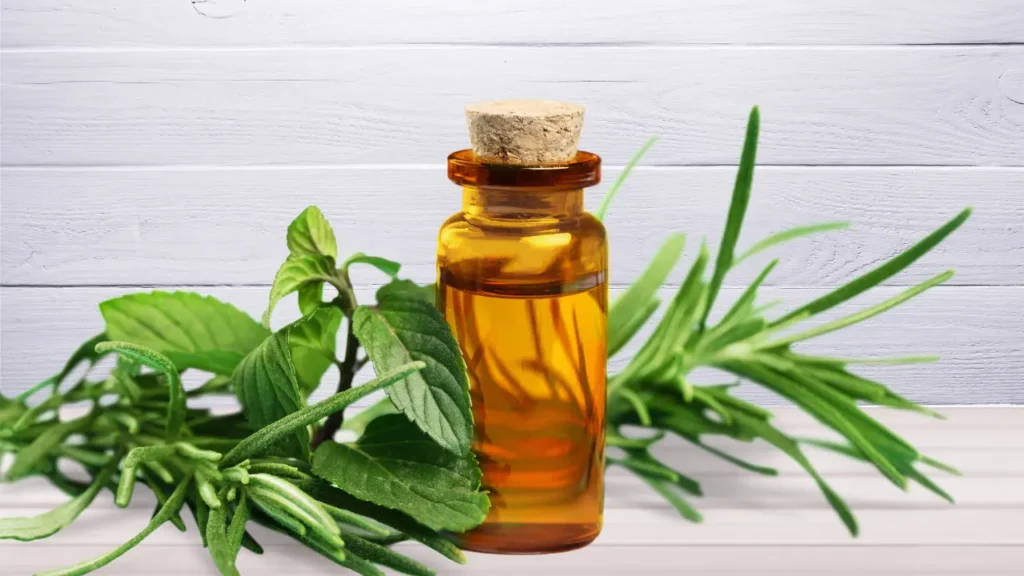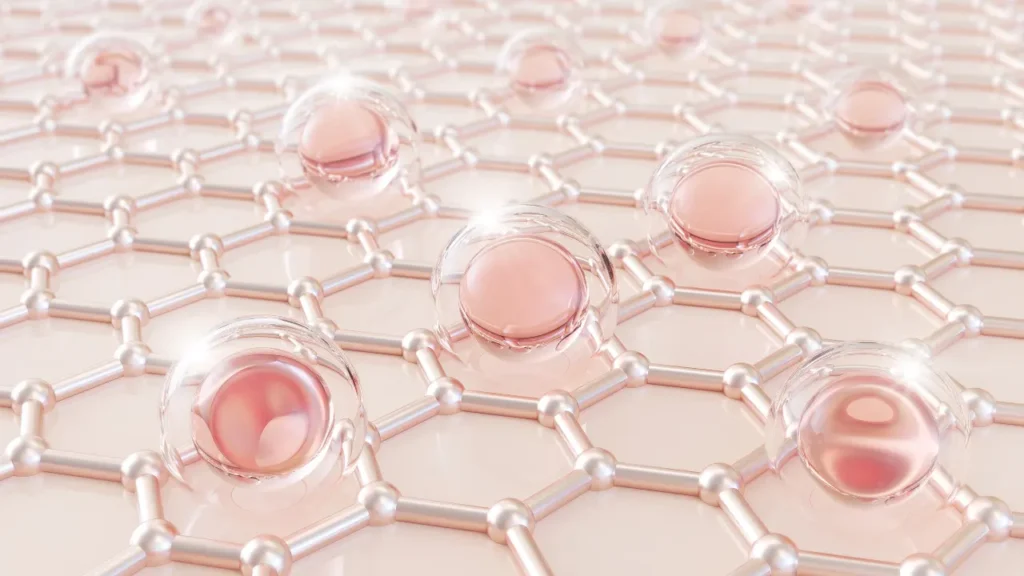Description
About 2% to 3% of the world’s population suffers from the non-contagious inflammatory condition of the skin called psoriasis. It manifests as the growth of thick, red areas of skin coated in white or silver scales. Although psoriasis predominantly affects one’s skin, it may also have an adverse effect on the joints and nails, placing a heavy physical and psychological strain on those who have the condition. Because the immune system erroneously targets cells that are healthy in psoriasis, the condition causes uncontrollable growth and rapid skin cell turnover. Due to this quick turnover, skin cells build up on the surface and create recognizable plaques.
You May Also Like:
IS DR MERCOLA KRILL OIL TRULY A GREAT SOURCE OF DAILY OMEGA-3S?
NATUREMYST KRILL OIL: A REVIEW OF THE FACTS ABOUT THIS LEADING OMEGA-3 PRODUCT
Psoriasis: Description, Causes, And Treatment Protocol is an original (HealthXWire) article.
Possible Causes
Although the precise cause of psoriasis is unknown, it is thought to be a result of a confluence of immunological, genetic, and environmental factors. The following list of potential causes and contributing elements for psoriasis development.
Immune System Dysfunction
An autoimmune illness known as psoriasis occurs when the immune system unintentionally assaults healthy skin cells. An excessive immune response causes inflammation and speeds up the proliferation of skin cells in people with psoriasis.
Genetic Predisposition
A substantial risk factor for developing psoriasis is family history, which includes a strong genetic component. Psoriasis has been linked to specific genes, specifically those involved with immune system function and skin cell development. Possessing these genes, nevertheless, does not ensure that a person will get unwell.
Triggering Events
In genetically predisposed people, psoriasis symptoms can start or worsen despite the contribution of hereditary factors. Some examples of these triggers are:
Injury or Trauma
Burns, cuts, or insect bites on the skin may cause the “Koebner phenomenon,” which is the formation of psoriasis lesions.
Infections
Some illnesses, notably streptococcal infections, may cause or exacerbate psoriasis, particularly guttate psoriasis.
Stress
For numerous individuals, psoriasis symptoms might be exacerbated or triggered by psychological or emotional stress. Techniques for reducing stress can aid in symptom management.
Medications
Lithium, beta-blockers, antimalarials, and specific nonsteroidal anti-inflammatory drugs or NSAIDs have all been linked to flare-ups of psoriasis.
Environmental Factors
Psoriasis can grow and worsen depending on the environment. These factors could include:
Lifestyle Factors
Smoking, excessive alcohol use, being overweight, and sedentary behavior are all associated with worsening psoriasis and less successful treatment outcomes.
Climate
Although warmer, more humid regions may offer some comfort, cold, dry conditions, such as those seen in the winter, might exacerbate problems.
Hormonal Factors
Some people may experience psoriasis symptom initiation or worsening as a result of hormonal changes related to pregnancy, puberty, or menopause.
Exacerbating and Mitigating Factors
Psoriasis management involves both aggravating and moderating elements in a substantial way. Flare-ups can be minimized and the illness can be better controlled overall by recognizing and avoiding exacerbating situations. Adopting measures to lessen these influences can also help with symptom management. The following are some typical psoriasis aggravating and reducing causes.
Exacerbating Factors
Infections
Psoriasis flare-ups may originate from bacterial or viral diseases, including respiratory infections or strep throat. Exacerbations can be avoided with prompt treatment for infections and excellent cleanliness habits.
Stress
Numerous instances of psoriasis symptoms have been shown to be brought on by or made worse by psychological stress. Relaxation exercises, meditation, and counseling are all stress-reduction methods that may also aid with psoriasis symptoms.
Skin Trauma or Injury
Burns, cuts, or excessive scratching of the skin can cause or aggravate symptoms of psoriasis in the regions that are impacted Flare-ups can be reduced by taking steps that safeguard the skin while preventing damage.
Dry and Cold Conditions
When the weather is cold and dry, psoriasis frequently gets worse. Cold and dry weather’s negative impacts can be reduced by frequently moisturizing the skin, utilizing a humidifier indoors, alongside clothing in layers to regulate body temperature.
Alcohol and Smoking
More serious alongside treatment-resistant psoriasis has been linked to excessive alcohol and cigarette use. Alcohol use can be decreased or eliminated, and stopping smoking can improve the course of treatment for psoriasis.
Medications
Some people’s psoriasis symptoms may worsen as a result of taking certain medications, including antimalarials, lithium, nonsteroidal anti-inflammatory drugs or NSAIDs, and beta-blockers. When choosing new drugs, it is crucial to discuss psoriasis with medical professionals.
Mitigating Factors
Eliminating Harsh Skincare Items
Avoiding skin irritation and reducing flare-ups can be accomplished by employing mild shampoos, soaps, and skincare items that lack potent chemicals or strong fragrances.
Moisturizing
Regular skin moisturizing lessens scaling, irritation, and pain while assisting in preventing dryness. Emollients or moisturizers without fragrances can relieve discomfort and strengthen the skin’s protective barrier.
Avoiding Triggers
Individual triggers are unique to each individual and may be identified and avoided to greatly reduce the severity of psoriasis symptoms. Some foods, alcohol, tobacco, stress, and other environmental conditions are typical triggers.
Vitamin D and Sunlight
Psoriasis symptoms might be alleviated by phototherapy or restricted sunlight exposure under physician supervision. Vitamin D, known for its anti-inflammatory and immune-modulating properties, is produced in response to sunlight.
Healthy Lifestyle
The management of psoriasis can benefit from adopting a healthy lifestyle. This involves consuming a balanced diet, exercising frequently, keeping a normal weight, and obtaining enough sleep.
Supportive Clothing
Itching and friction on one’s skin may be lessened by dressing comfortably and loosely in natural fibers like cotton.

Standard Treatment Protocol
Psoriasis is often treated in a step-by-step manner determined by the disease’s severity, the body surface area compromised, and how the condition affects the patient’s standard of life. The following choices could be part of the usual treatment protocol.
Topical Medications
Vitamin D Analogues
These artificial vitamin D compounds, like calcipotriene and calcitriol, aid in reducing scaling by slowing the proliferation of skin cells.
Corticosteroids
These psoriasis-related itching, redness, and inflammation can be reduced by using certain anti-inflammatory ointments or creams. They come in a variety of strengths and compositions.
Calcineurin Inhibitors
Tacrolimus and pimecrolimus are two medications that assist in controlling the immune system and decreasing inflammation. They are frequently applied to delicate places or when conventional therapies are ineffective.
Retinoids
Topical retinoids, like tazarotene, help restore skin cell development and lessen inflammation.
Phototherapy
PUVA Therapy
In order to cure psoriasis, psoralen with ultraviolet A or PUVA combines UVA radiation alongside a light-sensitizing drug. In a clinical environment, it is typically administered.
UVB Phototherapy
Inflammation is decreased and skin cell turnover is slowed down with controlled radiation from ultraviolet B or UVB light. A UVB unit at home or in a healthcare center may be used to administer it.
Systemic Medications
Cyclosporine
Owing to its potential negative effects, the immunosuppressive drug cyclosporine is only prescribed for extremely severe instances of psoriasis. It offers quick relief but is normally only used briefly.
Acitretin
Using oral retinoid medicine can help reduce symptoms and delay skin cell proliferation. It is very helpful for psoriasis which is palmoplantar or pustular.
Methotrexate
This oral medicine lowers inflammation while suppressing the immune system. When other therapies are unsuccessful or the psoriasis is mild to severe, it is frequently employed.
Biologic Agents
A more recent class of drugs called biologics targets particular immune responses linked to psoriasis. Etanercept, infliximab, adalimumab, secukinumab, ustekinumab, and ixekizumab are among examples. For mild to severe psoriasis, biologics are often given as an injection or intravenous infusion.

Treatment Options
Though conventional medications are the cornerstone of psoriasis control, some adjunct therapies, like herbal and natural remedies, might offer further advantages that include: –
Nutritional Supplements
Vitamin D
Supplementing with vitamin D might be helpful, especially for those with inadequate vitamin D levels, since it may assist to modify the body’s immune response and enhance skin health.
Omega-3 Fatty Acids
The severity of psoriasis symptoms may be lessened by omega-3 fatty acids, that are found in fish oil supplements and possess anti-inflammatory properties.
Natural Remedies
Aloe Vera
The soothing and anti-inflammatory effects of aloe vera gel are beneficial for sensitive skin.
Tea Tree Oil
Due to its anti-inflammatory qualities, this essential oil could assist with decreasing psoriasis-related itching and redness.
Capsaicin Cream
Capsaicin cream, which comes from chili peppers, may temporarily alleviate pain and irritation.
Herbal Therapies
Evening Primrose Oil
Gamma-linolenic acid (GLA) is a fatty acid included in this herbal supplement that may aid to relieve inflammation.
Turmeric
The primary ingredient in turmeric, curcumin, contains anti-inflammatory qualities and may aid with psoriasis symptoms.
Oregon Grape Extract
This herbal treatment, which originated from the naturally occurring Oregon grape plant, was previously used for many different skin diseases, including psoriasis, in the past.
Although adjunct therapies may have promise, there is currently little rigorous research to support their use in the management of psoriasis. Individual responses and possible combinations with traditional treatments may differ. To guarantee the safe and successful integration of adjunct treatments into the treatment strategy, consulting with a medical professional is essential.

Conclusion
Psoriasis affects millions of people across the globe and can range in severity. Though there is no immediate cure for this illness, there are ways to manage your symptoms. Maintaining your beauty regimen, for example, is very important, but reducing abrasive activity like frequent exfoliation can lessen the chance of a bothersome flare up. Opt for regular moisturization and unscented, non-irritating products.
Work closely with your medical provider to find topical solutions or biologic injections that work with you and your lifestyle. Keep in mind that while you cannot totally eradicate psoriasis, regular treatment will allow you to live your life very similarly to those who do not suffer from the illness at all.

Additional resources for further reference
https://www.psoriasis.org/about-psoriasis/
https://www.aad.org/public/diseases/psoriasis/what/symptoms
https://www.niams.nih.gov/health-topics/psoriasis
https://my.clevelandclinic.org/health/diseases/6866-psoriasis
Important Note: The information contained in this article is for general informational purposes only, and should not be construed as health or medical advice, nor is it intended to diagnose, prevent, treat, or cure any disease or health condition. Before embarking on any diet, fitness regimen, or program of nutritional supplementation, it is advisable to consult your healthcare professional in order to determine its safety and probable efficacy in terms of your individual state of health.
Regarding Nutritional Supplements Or Other Non-Prescription Health Products: If any nutritional supplements or other non-prescription health products are mentioned in the foregoing article, any claims or statements made about them have not been evaluated by the U.S. Food and Drug Administration, and such nutritional supplements or other health products are not intended to diagnose, treat, cure, or prevent any disease.
Table of Contents


